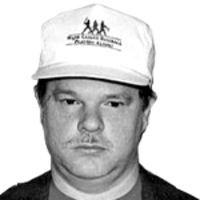Entertainment
James Minchin/FX
Kentucky’s Finest Antihero: Walton Goggins on Justified’s Chameleon Villain
Ruthless
Why is the drug lord of Harlan County so damn likeable? Walton Goggins, who plays Boyd Crowder on Justified, on his character’s moral compass.

Trending Now





